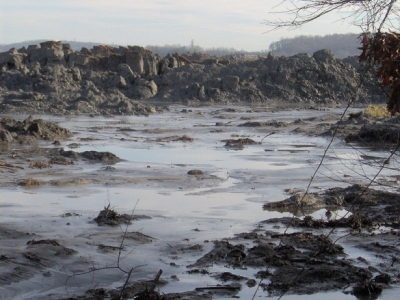First published at Wonk Room.
Now that President Obama and Secretary of State Hillary Clinton have returned from Copenhagen with a draft accord committing China, India, and the United States to a new era of climate action, the onus lies on the U.S. Senate to pass ambitious clean energy legislation. “Not a chance in hell that after the president put American prestige on the line in Copenhagen that the Senate is going to give this issue anything less than a major push,” Sen. John Kerry (D-Mass.) told reporters. “This is big — big — bigger than any individual agenda.” Unfortunately, many members continue to treat the dire need to reduce emissions and rebuild our economy as a political football. In particular, members who previously used China and India’s lack of commitment to emissions reductions as an excuse for inaction are now trying to redefine the Copenhagen Accord as meaningless. Sen. John McCain (R-Ariz.) led the pack, calling the accord a “nothing-burger“:
It’s a nothing-burger.
McCain then admitted he hadn’t actually read the agreement. But he is joined by fellow members on the right and left of the aisle who are continuing to argue that energy reform is too difficult to attempt. They are attempting to move the goalposts, as well. Even though China has now committed to transparent emissions reductions, senators are arguing that because China can’t really be trusted, we still shouldn’t act:
Sherrod Brown (D-Ohio): “If we don’t do this right, a company in Lima, Ohio, shuts down and moves to Wuhan, and we lose jobs.”
Bob Casey (D-Pa.): “The reality for states like Pennsylvania is, even as we move forward with any kind of climate change legislation, there are going to be cost impacts. We want to make sure we’re not adding yet another cost impact that other countries don’t have to shoulder.”
Susan Collins (R-Maine): “Right now, I would say that cap-and-trade is stalled.”
Chris Dodd (D-Conn.): “It will take a lot of work. We need to take a break around here and step back before we try anything of any controversy.”
Ted Kaufman (D-Del.): “If China will not let us verify, we’re going to have a heck of a time here. An agreement’s no good if you can’t verify.”
Carl Levin (D-Mich.): “Unless India and China are bound and we know what the details are — I don’t think necessarily that their agreeing to goals or whatever it was they agreed to will have an effect on cap-and-trade. If there was a binding agreement that tied them into limits that were meaningful, then I think that would have advanced the legislation. From what I understand of this, it’s more of agreeing to goals.”
Jay Rockefeller (D-W.Va.): “I think that the Chinese are perfectly capable of being on board for something and then not doing it.”
George Voinovich (R-Ohio): “I know for a fact that even though the government of China says they are committed to X and Y, the economy in China is run by the governors of the state.”
However, as Sen. Dick Durbin (D-Ill.) explained, the do-nothings in the Senate are dangerously misreading China’s role. The real concern should be that China and other nations are already taking the “green leap forward” and are far ahead in the climate race. The inability of the U.S. Congress to set a price on carbon and direct investment into a clean-energy economy is dooming American competitiveness and American jobs now, as well as the fate of future generations:
We have a responsibility to deal with this issue. We have to acknowledge the obvious. China, one of our great competitors in the world, is taking the green leap forward, as they say. They are committing themselves to this new energy-efficient economy, and they are building companies even in the United States that will make those products. Will the United States stand by the sidelines or will we be part of this leap forward? I don’t want to lose those jobs.


